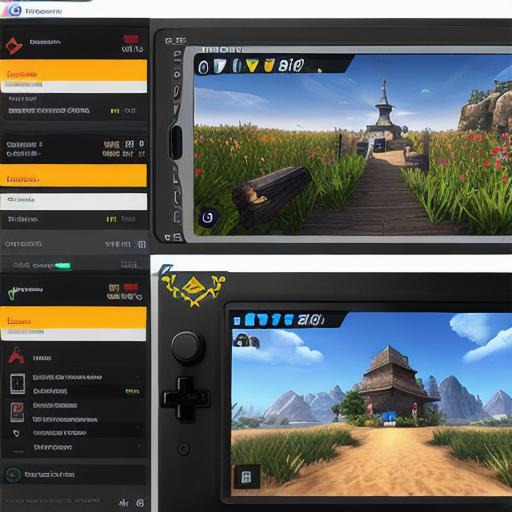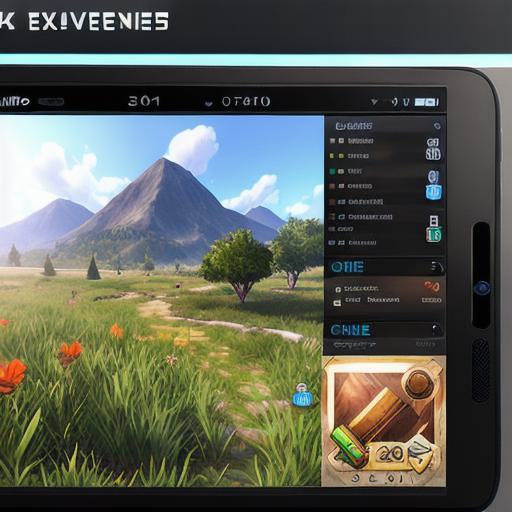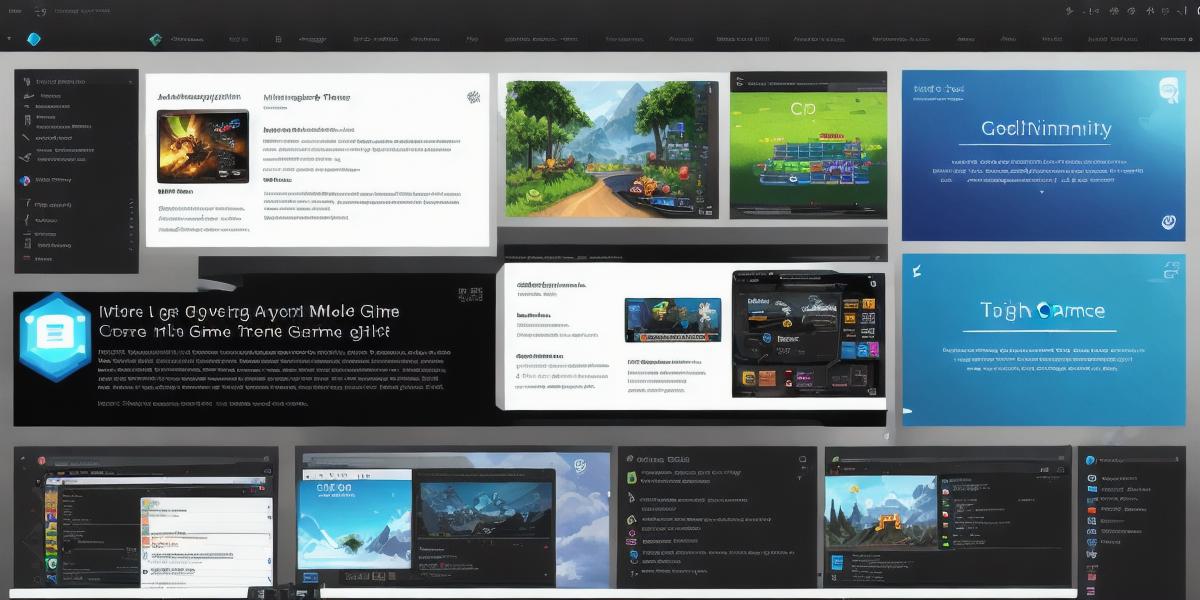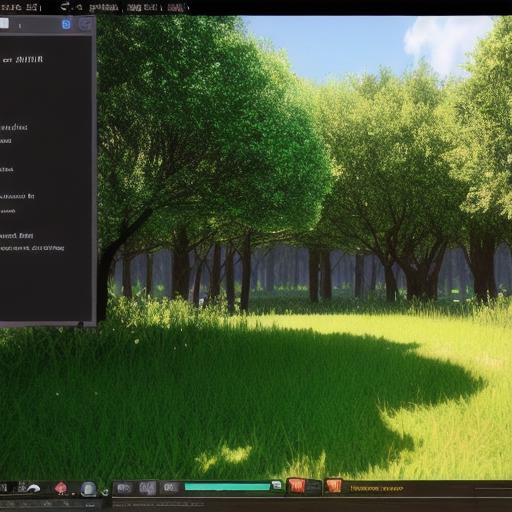The Ultimate Guide to Mobile Game Development Tools: A Comprehensive Analysis for Creating High-Quality Games
Mobile gaming has rapidly grown in popularity over the years, and with it, so has the demand for mobile game development tools. From beginner-friendly platforms to advanced software, there are a myriad of options available to developers looking to create high-quality games for their target audiences. In this article, we will explore some of the best mobile game development tools available today, taking into consideration factors such as ease of use, functionality, and cost-effectiveness.
Unity: The All-in-One Mobile Game Development Platform
Unity is one of the most popular mobile game development platforms on the market, with a user base that spans beginners to experienced developers. With Unity, you can create games for multiple platforms, including iOS and Android, using a single codebase. This makes it an ideal choice for developers who want to reach as many people as possible without having to learn multiple programming languages.
Unity offers a wide range of features that make game development easier, such as a built-in physics engine, support for 2D and 3D graphics, and a vast library of assets and plugins. It also has a strong community of developers who contribute to its constantly evolving ecosystem.
One of the key benefits of Unity is its ease of use. It comes with a user-friendly interface that makes it easy to navigate and understand, even for beginners. Additionally, Unity offers extensive documentation and tutorials that can help you get started quickly.
While Unity is a powerful tool, it can be expensive. The cost of the software varies depending on the version you choose, with pricing starting at $25 per month for their Basic plan. However, there are free alternatives available for beginners, such as Unity Hub and Unity Playground.
Unreal Engine: The Powerhouse of Mobile Game Development
Unreal Engine is another popular mobile game development platform that offers a wide range of features to help you create high-quality games. It is known for its powerful graphics engine, which can handle complex visual effects and real-time rendering with ease.
Unreal Engine also offers support for virtual reality (VR) and augmented reality (AR) development, making it an ideal choice for developers looking to create immersive gaming experiences. Additionally, Unreal Engine has a strong community of developers who contribute to its ecosystem through plugins, tools, and assets.
One of the key benefits of Unreal Engine is its flexibility. It can be used for both 2D and 3D game development, making it an ideal choice for developers looking to create games in multiple genres. Additionally, Unreal Engine offers extensive documentation and tutorials that can help you get started quickly.

Unreal Engine can be expensive, with pricing starting at $19.99 per month for their Epic plan. However, there are free alternatives available for beginners, such as Unreal Engine Hub and Unreal Engine Playground.
Construct 3: The Easy-to-Use Mobile Game Development Platform
Construct 3 is a mobile game development platform that is designed to be easy to use, even for people with no coding experience. It offers a visual programming interface that allows you to create games using drag and drop functionality, making it an ideal choice for beginners who want to get started quickly.
Construct 3 also offers support for both 2D and 3D game development, making it an ideal choice for developers looking to create games in multiple genres. Additionally, Construct 3 has a strong community of developers who contribute to its ecosystem through plugins and assets.
One of the key benefits of Construct 3 is its affordability. It offers a free version that can be used for personal projects or small-scale commercial projects, as well as paid plans starting at $14.95 per month for their Pro plan.
Cocos2d: The Lightweight Mobile Game Development Platform
Cocos2d is a mobile game development platform that is known for its lightweight nature and ease of use. It is written in C++ and can be used to create games for both iOS and Android platforms, making it an ideal choice for developers who want to reach as many people as possible without having to learn multiple programming languages.
Cocos2d offers a wide range of features that make game development easier, such as support for 2D graphics, physics engines, and sound effects. It also has a strong community of developers who contribute to its ecosystem through plugins and assets.
One of the key benefits of Cocos2d is its affordability. It is an open-source platform that can be used for free, making it an ideal choice for beginners who want to get started without breaking the bank. However, there are also paid versions available for commercial projects.

MonoDevelop: The Cross-Platform Mobile Game Development Platform
MonoDevelop is a cross-platform mobile game development platform that can be used to create games for iOS and Android platforms using C code. It offers support for both 2D and 3D game development, making it an ideal choice for developers looking to create games in multiple genres.
MonoDevelop offers a wide range of features that make game development easier, such as built-in debugging tools, code analysis, and integration with popular game engines like Unity and MonoGame. It also has a strong community of developers who contribute to its ecosystem through plugins and assets.
One of the key benefits of MonoDevelop is its affordability. It offers a free version that can be used for personal projects or small-scale commercial projects, as well as paid plans starting at $19.99 per month for their Professional plan.
The Best Practices for Mobile Game Development Tools
When choosing mobile game development tools, it is important to consider the following best practices:
- Choose a tool that fits your needs and skill level. Consider factors such as ease of use, functionality, and cost-effectiveness when making your decision.
- Look for a tool with a strong community of developers who contribute to its ecosystem through plugins, tools, and assets. This can help you save time and money by leveraging pre-existing solutions instead of having to build everything from scratch.
- Consider the scalability of the tool. If you plan on growing your team or expanding your project in the future, choose a tool that can handle increased complexity and workload.
- Test the tool before committing to it. Most tools offer free trials or demos that allow you to try them out before making a purchase. This can help you get a better sense of how they work and whether they are right for your needs.
- Stay up-to-date with the latest developments in mobile game development tools. The industry is constantly evolving, so it’s important to stay informed about new technologies, updates, and best practices.
Case Studies: Real-Life Examples of Mobile Game Development Tools in Action
To illustrate how mobile game development tools can be used in practice, let’s take a look at some real-life examples.
- Flappy Bird: Created using Unity, Flappy Bird was one of the most popular mobile games of all time, with over 50 million downloads worldwide. Its simple yet addictive gameplay and colorful graphics made it an instant hit among casual players.
- Minecraft Earth: Created using Unreal Engine, Minecraft Earth is a version of the popular block-building game that allows players to explore and build in real-world locations. It uses augmented reality technology to create an immersive gaming experience that blurs the line between virtual and reality.
- Angry Birds 2: Created using Construct 3, Angry Birds 2 is a sequel to the popular puzzle game that was released in 2014. It features new levels, characters, and power-ups, making it an instant hit among fans of the original game.
Conclusion
In conclusion, mobile game development tools offer a range of benefits for developers looking to create engaging and interactive games for iOS and Android platforms. By considering factors such as ease of use, functionality, cost-effectiveness, scalability, and staying up-to-date with the latest developments in the industry, you can choose the right tool for your needs and create the game of your dreams.



